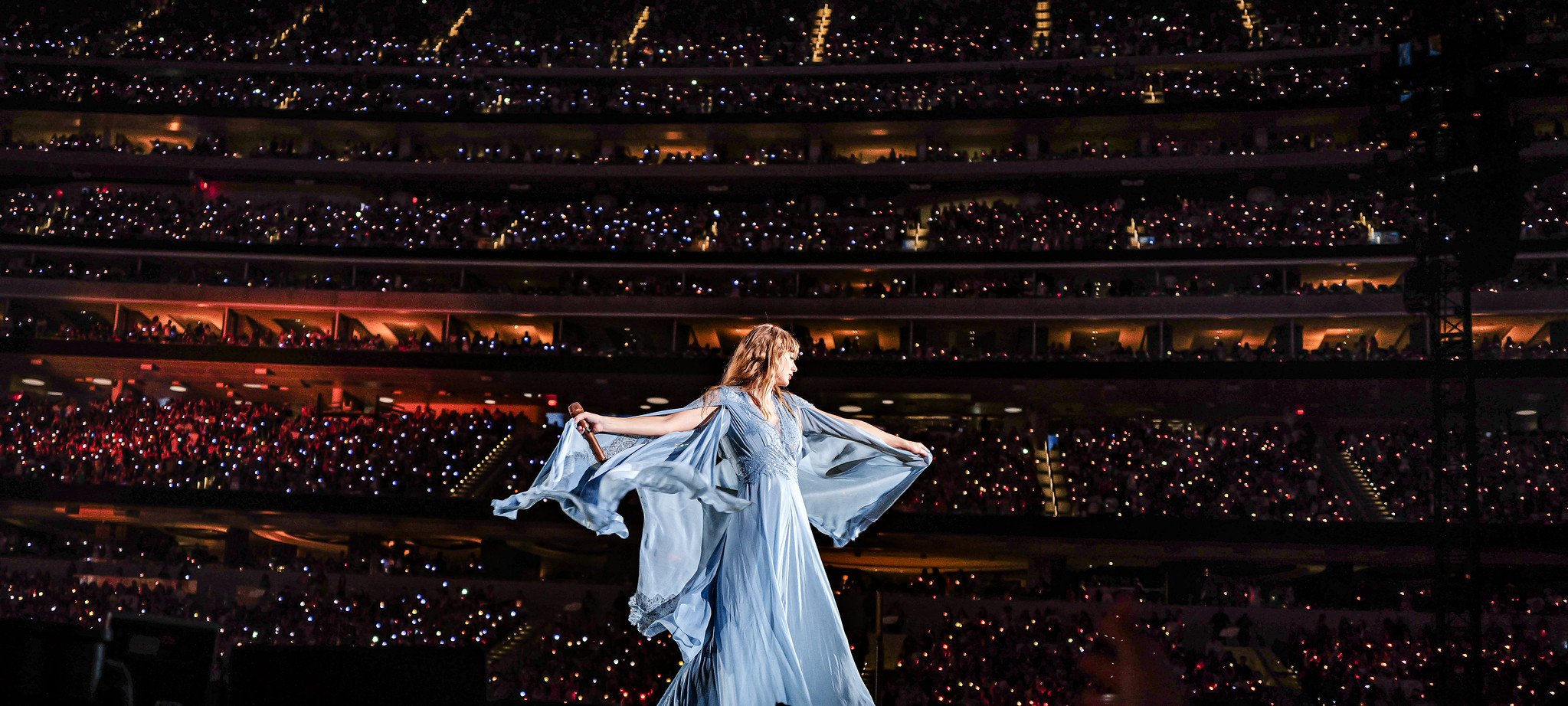26 December 2023
As in past years, I’ve come up with a list of Words Of The Year (WOTY). I do things a bit differently from other sites in that I don’t try to select one term to represent the entire year. Instead, I select twelve terms, one for each month.
During the year as each month passed, I selected one word or phrase that was linguistically interesting, prominent in public discourse, or representative of major events of that month. Other such lists that are compiled at year’s end often exhibit a bias toward terms that are in vogue in November or December, and my hope is that a monthly list will highlight words that were significant earlier in the year and give a more comprehensive retrospective of the planet’s entire circuit around the sun. I also don’t publish the list until late in December; selections of words of the year that are made in November (or even earlier!), as some of them are, make no sense to me. You cannot legitimately select a word to represent a year when you’ve still got over a month or more left to go.
January: generative AI
Generative AI is a computer tool (i.e., artificial intelligence) that, in response to a prompt, can produce new content (e.g., text or images) based on a large database of representative samples.
In November 2022, the OpenAI company launched ChatGPT, a generative AI, a large language-model, artificial intelligence that is capable of producing sensible and grammatically correct text in a wide variety of writing styles on a seemingly limitless number of topics. By January it, along with its companion product DALL-E, which generated images, was the hot new thing. Bold predictions of it replacing much of the white-collar workforce were followed by revelations that ChatGPT “hallucinated” and simply invented facts. And lawsuits based on copyright infringement for unauthorized use of text and images to train the AI followed that. While much of the hype over generative AI is overblown, there is no doubt it will transform society and the economy in ways we are only beginning to fathom.
The term generative AI has been in use since at least 2012.
February: UAP
UAP is an acronym for Unidentified Aerial Phenomenon, a term that is replacing UFO (Unidentified Flying Object) in certain circles because the latter term has become indelibly associated with supposed extraterrestrial visitation and the tinfoil-hat crowd. In late January and early February, the US Air Force tracked and shot down a Chinese spy balloon that traversed the United States. That was followed by reporting of other interceptions and downings of other UAPs by the Air Force.
UAP has been in use since 1963 but rose in prominence in February.
March: enshittification
Enshittification, or platform decay, is the tendency of online platforms to decline in quality, often as a strategy by the owners to generate more revenue. The pattern typically has an initial phase that makes it easy for users to join the network and that offers value. Then as the platform becomes ubiquitous, the owners offer lower value and raise prices, but users find it difficult to leave because of high switching costs (all your friends are on Facebook or Amazon penalizes sellers who offer their products elsewhere).
In March 2023, the new owner of Twitter, Elon Musk, literally turned Twitter to shit when in response to press criticism of his takeover of the company tweeted the following: “press@twitter.com now auto responds with 💩.”
Enshittification was coined by writer Cory Doctorow in November 2022.
April: rapid unplanned disassembly (RUD)
On 20 April, a test of SpaceX’s Starship rocket resulted in what the company’s engineers called a rapid unplanned disassembly. In other words, it blew up shortly after launch. A second attempt to launch the rocket into orbit in November also resulted in its exploding. Previous sub-orbital attempts starting in 2020 were also failures, either blowing up or crashing upon landing. While such failures are to be expected in rocket testing, the repeated failures were yet another public relations disaster for Elon Musk, who is the chairman and CEO of SpaceX.
But this was not the first time the euphemism rapid unplanned disassembly has been used. That’s been a tongue-in-cheek engineering expression since at least 1991. The phrase has also spawned an acronym, RUD.
May: coronation
On 6 May, Charles III was crowned, or coronated, King of the United Kingdom and Other Commonwealth Realms. It was the first British coronation in seventy years.
Coronation is a fourteenth-century borrowing of the Anglo-Norman coronacion, which in turn is taken from the Latin coronamen, to wreathe or crown.
June: indictment
On 8 June, Justice Department Special Counsel Jack Smith indicted Donald Trump on forty felony counts relating to the retention and mishandling of classified information. Earlier, in March, Trump had been indicted by New York state for falsifying business records related to hush money payments to porn star Stormy Daniels made during the 2016 presidential campaign. And in August, Smith again indicted Trump, this time on four counts related to the storming of the Capitol on 6 January 2021, and the state of Georgia indicted Trump on thirteen counts related to attempts to overturn the 2020 election results in that state. This is the first time that a president or former president has ever been indicted for a crime.
Indictment is a fourteenth-century borrowing of the Anglo-Norman enditement.
July: Barbenheimer
On 21 July, the feature films Barbie, directed by Greta Gerwig, and Oppenheimer, directed by Christopher Nolan, were released to theaters in the US and UK. Both were enormously successful, with Barbie earning over $1.4 billion at the box office and Oppenheimer over $950 million. Despite the unlikely pairing of a movie about a doll and a movie about the inventor of the atomic bomb, many people took to watching the films as a double feature, and the portmanteau and internet phenomenon of Barbenheimer was born. Instead of creating competition, the simultaneous release boosted the box office take of both films and marked a milestone in the post-pandemic recovery of movie theaters.
The first known use of Barbenheimer was on 15 April, in anticipation of the films’ release.
August: Chandrayaan
India’s Chandrayaan-3 rover landed on the moon on 23 August, making India the fourth nation to successful land on the moon and the first to do so in the moon’s south polar region. Landing at the poles is more difficult and fuel-intensive than landing in the equatorial regions, where the US, Russian, and Chinese missions had all set down. The 2008 Chandrayaan-1 mission consisted of an orbiter and impactor, which discovered water in the polar region. The second mission consisted of an orbiter and a lander, but the lander crashed in September 2019. The orbiter is still operational. The third mission’s lander operated for only twelve days, conducting a number of scientific missions including the detection of a potential moonquake, before being put into sleep mode in preparation for the lunar night, which it was not expected to and did not survive. The mission’s success marks India’s rise as one of the world’s technology leaders. In April, the United Nations estimated that India’s population had exceeded that of China’s, making it the most populous nation.
Chandrayaan is a compound of the Sanskrit and Hindi words chandra (चंद्र, moon) and yaan (यान, vehicle).
September: picket
On 26 September, US President Biden briefly joined striking United Auto Workers on a picket line in Michigan. It was the first time a US president had ever done that. The workers were striking for higher wages and cost-of-living increases, an attempt to claw back losses they had suffered over previous decades. The strike against all three major auto manufacturers was successful, with new contracts negotiated in October. 2023 saw a resurgence of organized labor in the United States, with strikes that included television and film actors and writers and new attempts to organize unions in companies like Starbucks, Apple, Trader Joe’s, REI, and Barnes and Noble.
The use of picket in the context of workers strikes dates to at least 1818.
October: Nakba
The Arabic النكبة (al-Nakba, The Catastrophe) was the ethnic cleansing of the Palestinian people from the territory of the State of Israel in 1948, and the word is also used to refer to the ongoing occupation of the West Bank and Gaza. The word gained renewed salience and was used in multiple news reports following the attack on Israel by Hamas on 7 October and the subsequent retaliation by Israel military forces. Nakba corresponds to the Hebrew Shoah (שואה), which also means catastrophe and is used to refer to the Holocaust. Both words have been common in English-language discourse since the 1980s.
November: vermin
In a political speech on 11 November, Veteran’s Day, Donald Trump went full Nazi, referring to his political enemies as vermin. While in the past, Trump has often used offensive language in referring to his opponents, his use of this word echoed the rhetoric of speeches by Adolph Hitler and Nazi propaganda and baldly associated himself with the growing fascist movement in America. Trump said:
In honor of our great veterans on Veteran’s Day, we pledge to you that we will root out the communists, Marxists, fascists and the radical left thugs that live like vermin within the confines of our country that lie and steal and cheat on elections and will do anything possible, they’ll do anything, whether legally or illegally, to destroy America and to destroy the American Dream.
Many news reports of Trump’s speech compared it to a quote attributed to Hitler that used the word Ungeziefer (vermin):
Die Natur ist grausam, darum dürfen wir es auch sein. Wenn ich die Blüte der Deutschen in die Stahlgewitter des kommenden Krieges schicke, ohne auch nur um das kostbare deutsche Blut, das vergossen wird, das leiseste Bedauern zu verspüren, sollte ich dann nicht das Recht haben, Millionen einer minderwertigen, sich wie das Ungeziefer vermehrenden
(Nature is cruel; therefore, we are also entitled to be cruel. When I send the flower of German youth into the steel hail of the next war without feeling the slightest regret over the precious German blood that is being spilled, should I not also have the right to eliminate millions of an inferior race that multiplies like vermin?)
The quote is from Herman Rauschning’s Gespräche mit Hitler, an account of that politician’s conversations with Hitler during 1932–34. Rauschning was a conservative German politician who briefly aligned with the Nazi party in the early 1930s, before breaking with Hitler and fleeing the country in 1934. The book was published in exile in 1940. Rauschning does not give a date or a context for this conversation, however, and he was writing from memory and notes. So while the quotation should not be considered a verbatim account of Hitler’s words, he probably said something very similar to this. And Ungeziefer was commonly used in Nazi writing to refer to those it wished to exterminate.
December: Swiftie
A Swiftie is a fan of singer-songwriter Taylor Swift. Few non-politicians have been so consistently in the news throughout the year as has Swift. Her Eras tour grossed over a billion dollars during the year—the highest of all time. She is also estimated to have generated some US$5 billion in consumer spending during the year. But her impact goes well beyond the world of entertainment. She is a staunch supporter of feminist and LGBTQ+ causes. She is pro-choice and supports gun control measures and the Black Lives Matter movement. In 2020, she posted on social media urging her fans to vote, resulting in 65,000 voter registrations in the next twenty-four hours. She did the same thing in 2023, resulting in some 35,000 registrations. In December, Time named her its Person of the Year, the first woman to be so named twice (in 2017 she was featured as one of the “Silence Breakers” of the Me Too movement) and the first from the world of entertainment to be so named.
Swiftie has been in use since least 2010 as a nickname for the singer and since 2013 as a name for a fan of hers.
Image Credits: 2023: Davi Revoy, 2023, licensed under a Creative Commons Attribution 4.0 International license; Generative AI: OpenAI and Zhing Za, 2023, Wikimedia Commons, public domain image; UAP: George Stock, 1952, Wikimedia Commons, public domain image; Enshittification: Openemoji.org, 2018, Wikimedia Commons, licensed under a Creative Commons Attribution-Share Alike 4.0 International license; Rapid Unscheduled Disassembly: Steve Jurvetson, 2020, Wikimedia Commons, licensed under a Creative Commons Attribution 2.0 Generic license; Coronation: W. & D. Downey, 1902, Royal Collection RCIN 2933174, public domain work; Indictment: US Department of Justice, 2023, public domain work; Barbenheimer: Bazi, 2023, Wikimedia Commons, licensed under a Creative Commons Attribution-Share Alike 4.0 International license; Chandrayaan: India Space Research Organization, 2023, Wikimedia Commons, licensed under a Government Open Data License—India (GODL); Picket: Adam Schultz (White House photo), 2023, Wikimedia Commons, public domain image; Nakba: Fred Csasznik, 1948, Wikimedia Commons, public domain image; Vermin: Heinrich Hoffmann, 1927, Wikimedia Commons, Bundesarchiv Bild 102-13774, licensed under a Creative Commons Attribution-Share Alike 3.0 Germany license; Swiftie: Paolo Villanueva, 2023, licensed under a Creative Commons Attribution 2.0 Generic license.














